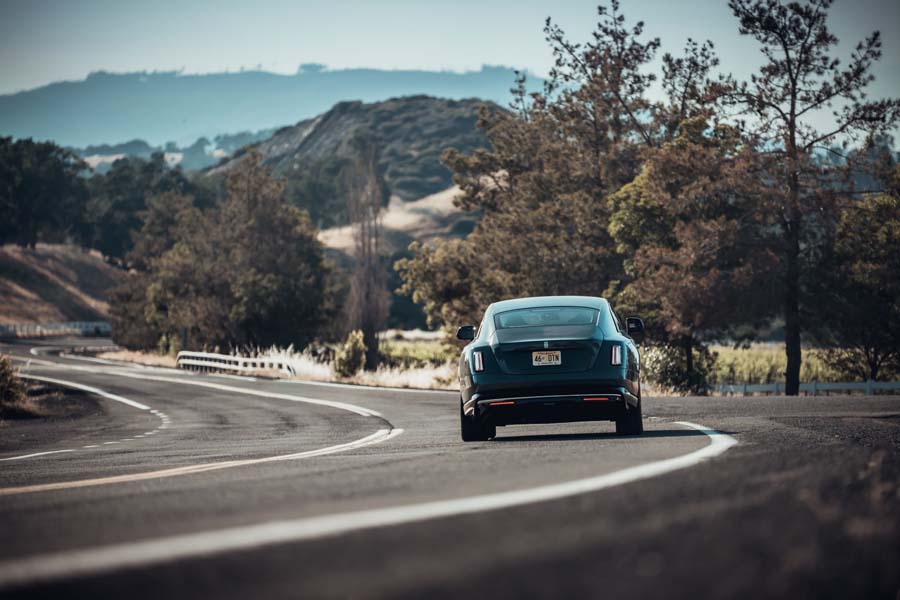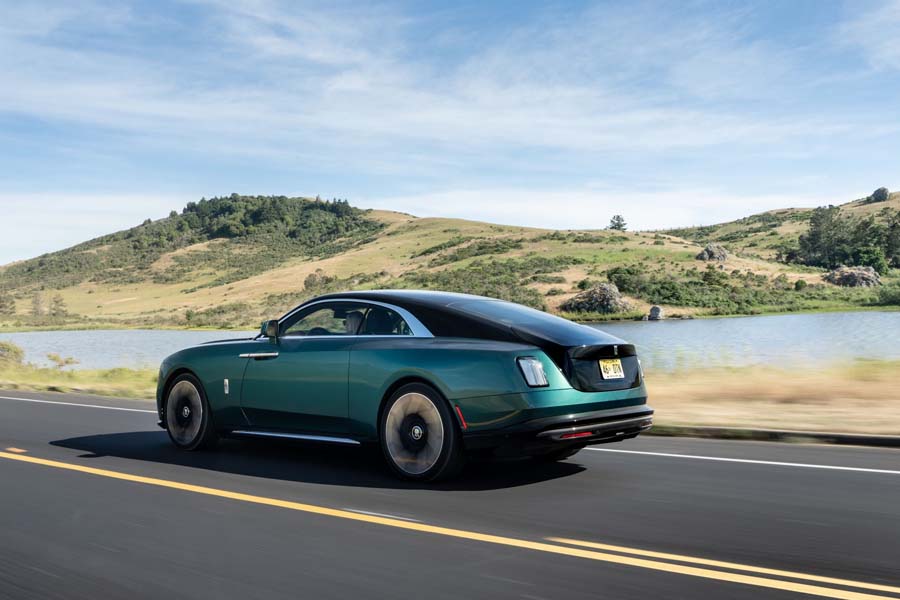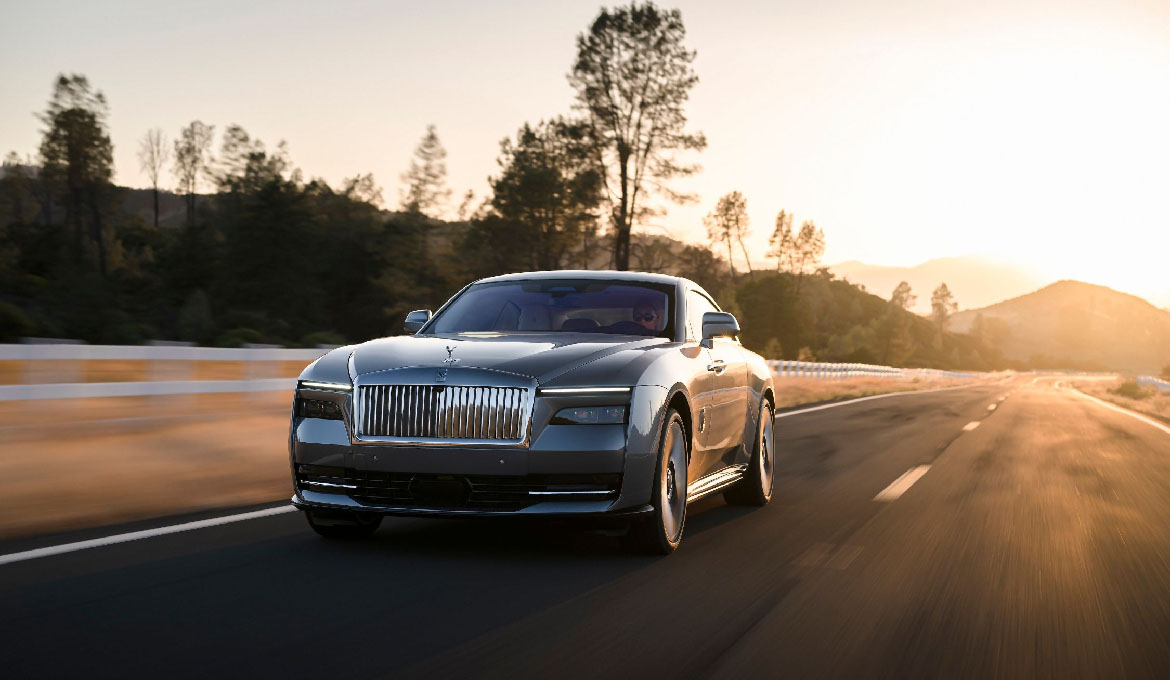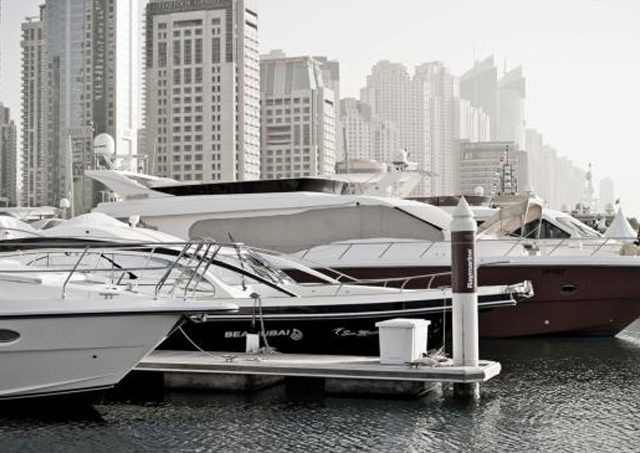THE ROLLS-ROYCE THAT CHANGES EVERYTHING
Background
In 1900, motoring pioneer The Hon Charles Stewart Rolls made a bold prediction in a magazine article: “The electric car is perfectly noiseless and clean. There is no smell or vibration. They should become very useful when fixed charging stations can be arranged,” he declared. Those words, written four years before his historic first meeting with Henry Royce, were to prove prophetic; but it was more than a century later that his vision was finally realised by the company they co-founded.
In September 2021, Rolls-Royce Motor Cars confirmed it had begun testing of the first model in its history to be conceived and engineered from the beginning as an electric car. That testing programme extended to more than 2.5 million kilometres in every extreme of terrain and temperature, simulating over 400 years of normal use. A year later, in October 2022, Spectre was unveiled to the world: an audacious promise kept, and a monumental technical undertaking completed.
As the first fully-electric Rolls-Royce ever made, Spectre proves that battery-electric technology has entirely come of age, and can be successfully deployed at the very apex of automotive excellence, luxury and performance. It also represents an epochal technological and intellectual shift for the marque: by the end of 2030, its entire product portfolio will be fully electric; Rolls-Royce will never again produce a new model with an internal combustion engine.
Spectre has created an entirely new class of motor car: the ultra-luxury electric super coupé. The all-electric powertrain takes the signature Rolls-Royce experience – instant torque, silent running and the sense of one imperceptible gear – and enhances it for a new generation of clients. Its ‘Decentralised Intelligence’ system enables free and direct exchange of information between thousands of individual vehicle functions, further elevating the marque’s celebrated ‘magic carpet ride’. And in its contemporary yet timeless aesthetic, it takes the brand’s design language and Bespoke capabilities into a new, electric age.
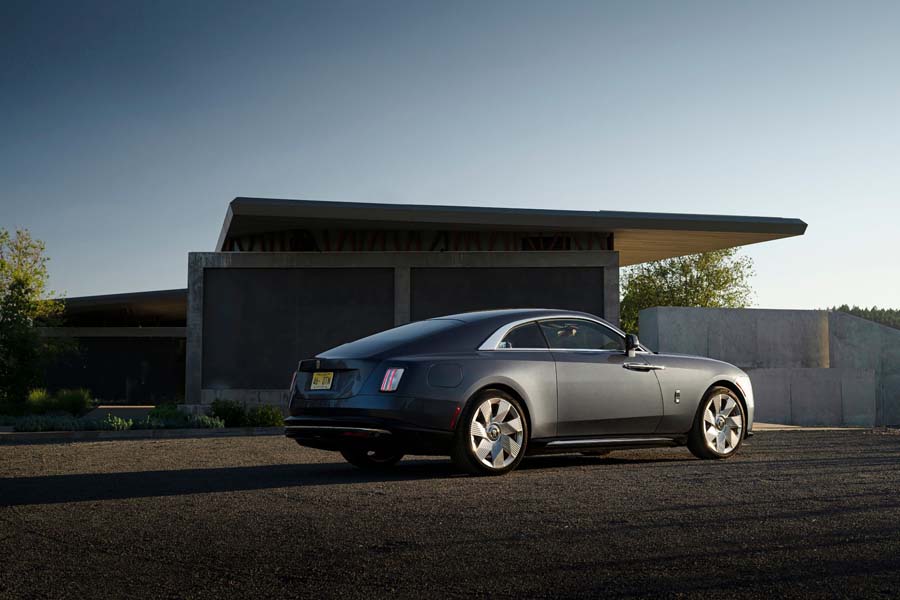
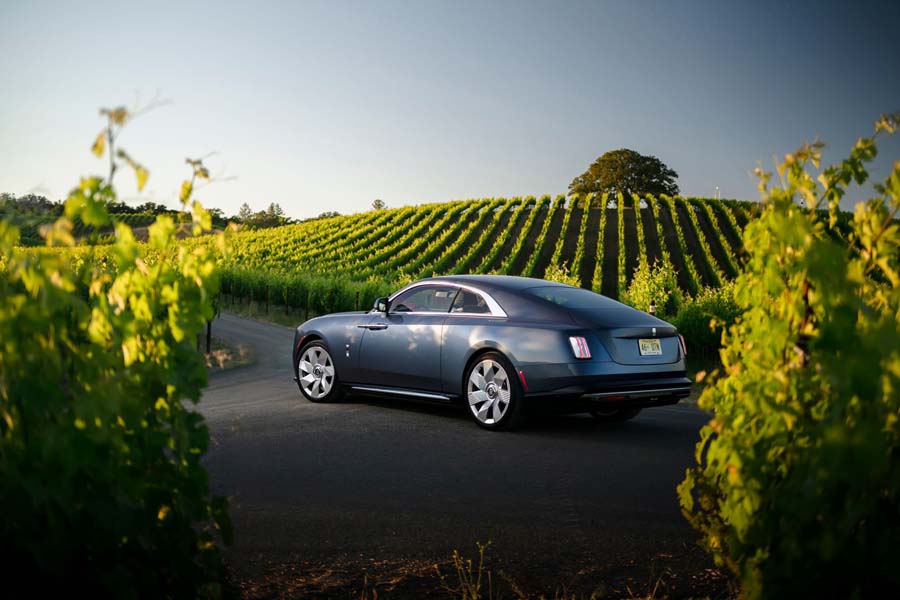 Spectre philosophy and positioning
Spectre philosophy and positioning
Spectre is the Rolls-Royce that changes everything – the world’s first ultra-luxury electric super coupé, ushering in the marque’s bold new all-electric future. Crucially, it is a Rolls-Royce first and an electric car second: no concessions or compromises in terms of interior space, comfort, performance or ride quality have been made– indeed, all have been refined and augmented by the car’s underpinning architecture and engineering.
A generously proportioned, visually striking two-door fastback, Spectre is the spiritual successor to the fabled Phantom Coupé. Its intimate interior provides a perfect canvas for Bespoke personalisation, complemented by a unique illuminated fascia and the first Starlight Doors ever specified in a production Rolls-Royce.
No two Spectre clients are exactly alike.
ENGINEERING
‘Rolls Royce 3.0’
The first Goodwood-era Rolls-Royce, launched in 2003, was Phantom. Underpinned by its own Bespoke architecture, this was Rolls-Royce 1.0. For its successor, the marque created the ‘Architecture of Luxury’ (see below) – an all-aluminium spaceframe that also provides the foundations for Cullinan and Ghost – representing Rolls-Royce 2.0. With its fully-electric powertrain and Decentralised Intelligence, Spectre marks the start of Rolls-Royce 3.0, and a new era for super-luxury motoring.
All-aluminium Architecture of Luxury
Spectre is the fourth series Rolls-Royce to be built on the Architecture of Luxury platform, which is unique and proprietary to Rolls-Royce Motor Cars. In a farsighted move reminiscent of Charles Rolls’ famous prophecy, it was deliberately conceived from the outset to accommodate an electric powertrain as and when the technology became available.
It comprises an all-aluminium spaceframe that is infinitely scalable and modifiable around four fixed points, one at each corner of the motor car. This inherent flexibility allows Rolls-Royce to adjust the bulkhead, floor, crossmembers and sill panels in a way most appropriate to each individual product.
With Spectre, Rolls-Royce engineers unlocked previously unexplored potential in the concept. The sophisticated extruded aluminium sections and integration of the battery into the structure make Spectre’s spaceframe 30% stiffer than in any previous Rolls-Royce. The architecture also allowed engineers to place the floor halfway between the sill structures rather than above or underneath them.
A channel for wiring and climate control pipework runs between the battery and the floor, with the battery mounted underneath, producing a perfectly smooth underfloor profile. This allows a low seating position, while moving the bulkhead location deepens the dashboard to create a truly cocooning passenger cabin. This sensation is amplified by Spectre’s dramatically raked windscreen, which also contributes to the car’s exceptional aerodynamics (see below).
The battery’s position gives it a highly beneficial secondary function: fully integrated into the motor car’s architecture, it acts as 700kg of additional acoustic insulation.
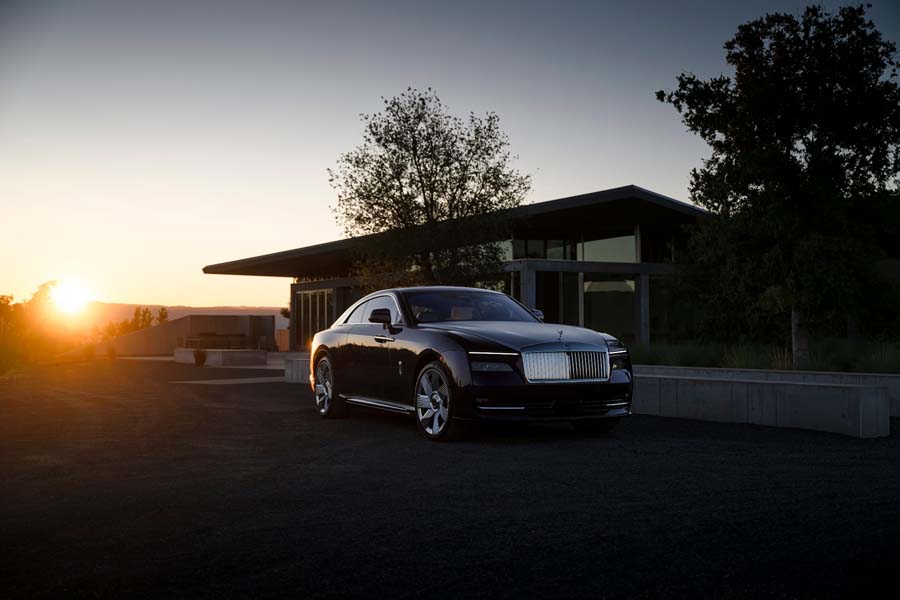
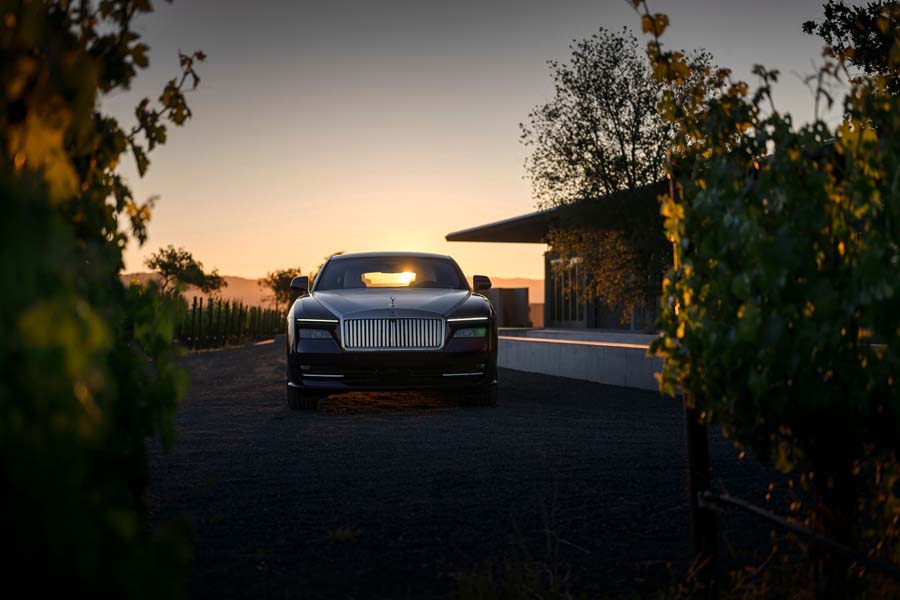 All-electric drivetrain
All-electric drivetrain
With Spectre, Rolls-Royce committed to an uncompromised electric future by specifying an all-electric drivetrain rather than a hybrid solution. It is fitted with two Separately Excited Synchronous Motors (SSMs). The front electric motor produces 190kW / 365 Nm, with the rear motor delivering 360kW / 710 Nm. In performance terms, this equates to an internal combustion engine of 430kW (584 hp) with 900Nm of torque. In terms of acceleration, Spectre achieves 0-60mph in 4.4 seconds (0-100km/h in 4.5 seconds).
In establishing an appropriate range for Spectre, the marque first engaged with clients, to understand their requirements. The confirmed range of 530km (329 miles) WLTP goes beyond these requirements, confirming that Spectre fits perfectly into the lifestyle of Rolls-Royce clients, who have an average of more than seven cars in their garage to choose from for any occasion, and who drive an average of 5,100km in their current Rolls-Royce per year.
Charge time from 10-80% is 34 minutes using a 195 kW (DC) fast charger: this will also produce sufficient charge for 100km in around nine minutes.
Spectre is equipped with Active Lane Centring and Adaptive Cruise Control simultaneously.
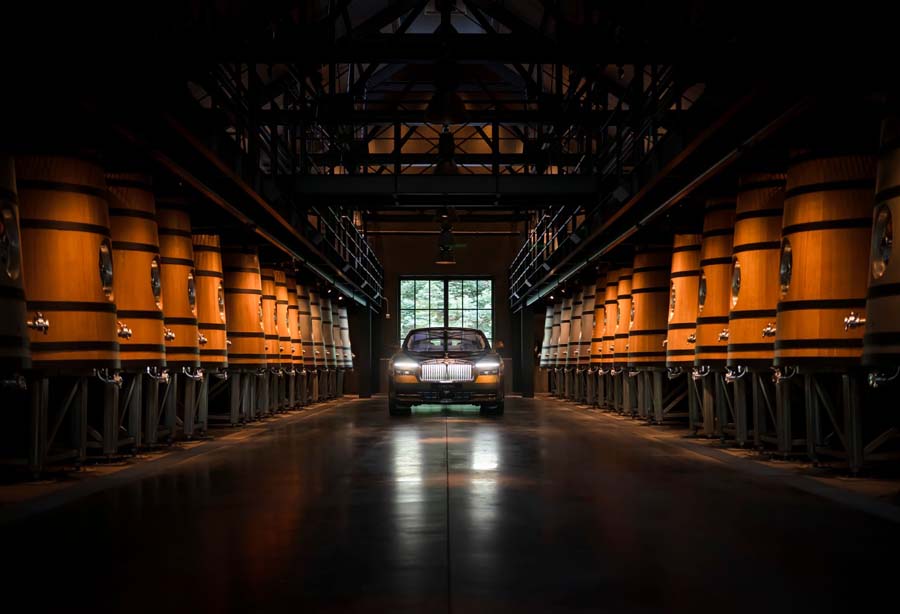
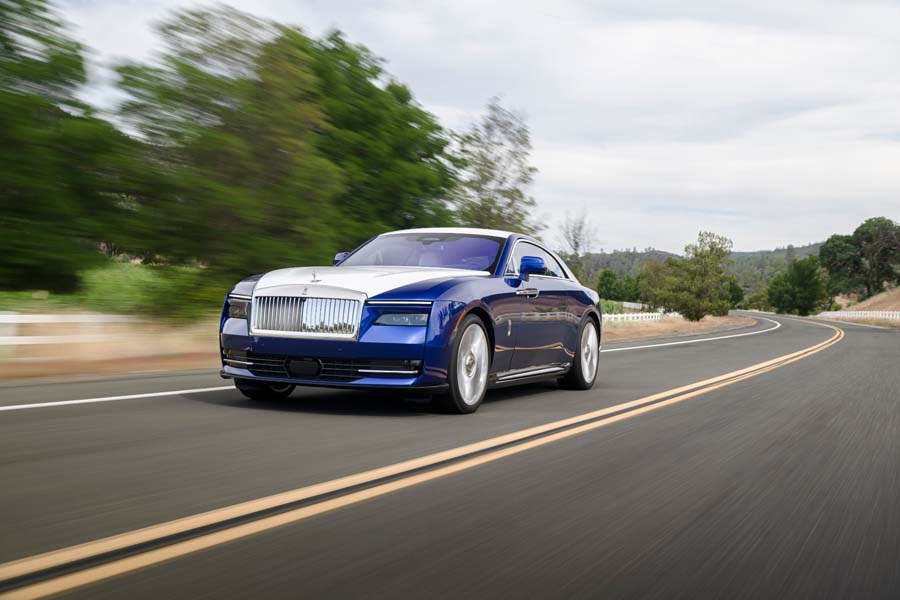 Battery
Battery
Spectre has a 102kWh lithium-ion battery, made using cobalt and lithium from strictly controlled sources in Australia, Morocco and Argentina: the battery cells are produced using 100% green electricity. It has been extensively tested in temperatures ranging from -40°C to +50°C: Spectre’s on-board thermal management system maintains an optimum operating temperature at all times.
Recuperative braking
Spectre has a recuperative braking function that the driver can configure by pushing a button marked ‘B’ on the Column Shifter. By activating ‘Brake Mode’, regenerative braking is increased, enabling so-called single-pedal driving and even allowing the car to come to a complete stop if desired. The default setting on starting is low regeneration, mimicking the automatic driving style of an ICE Rolls-Royce.
Digital Engineering
Spectre is the most connected Rolls-Royce in history, with three times as many sender-receiver signals as any previous model. Indeed, engineers describe it as ‘Rolls-Royce in ultra-high definition’ on account of the speed and accuracy of its responses to road and weather conditions. Each of the car’s thousands of drivetrain and chassis characteristics were exhaustively tested and refined during its 2.5-million-kilometre testing programme.
Through a software architecture known as Decentralised Intelligence, data is processed closer to its source rather than being handled in its entirety by a single central processing unit. To achieve this, each of the 141,200 sender-receiver variables has its own dedicated handmade control; in nearly all cases, several additional sub-variables account for variations in climate, ground speed, road type, vehicle status and driving style. This enables the car to respond more quickly to driver inputs and changing road conditions.
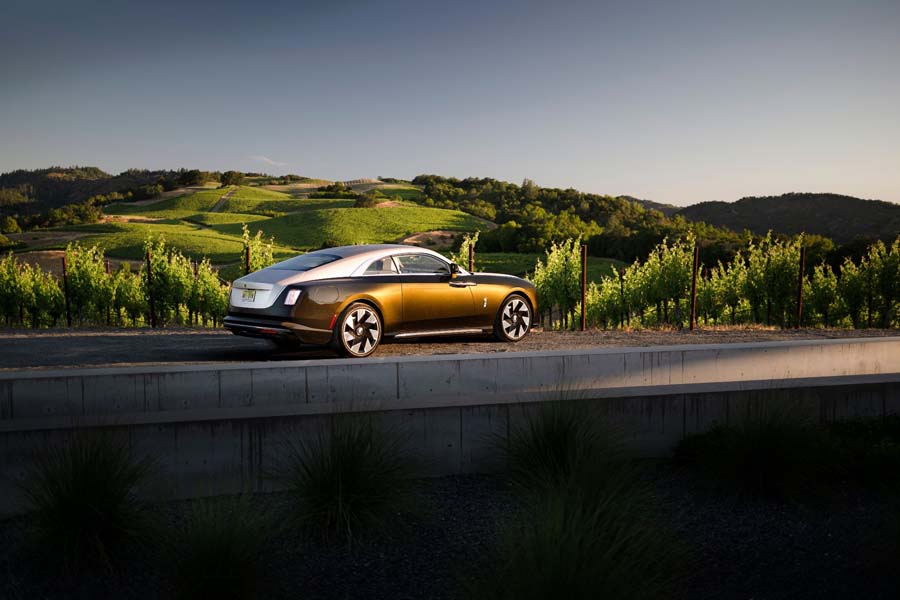
 Planar Suspension System
Planar Suspension System
Spectre’s suspension is an evolution of the Planar System originally launched on Ghost. Engineers describe it as ‘an orchestra of systems’, which combines specially developed hardware and Spectre’s high-speed processing capabilities to deliver the marque’s hallmark ‘magic carpet ride’.
Spectre’s 30% greater torsional rigidity negates the need for the upper wishbone damper used in Ghost. On straight roads, the system can automatically decouple Spectre’s anti-roll bars, allowing each wheel to act independently. This prevents the rocking motion that occurs when one side of a vehicle hits an undulation in the road, and dramatically reduces high-frequency disturbances caused by smaller, repeated surface defects.
When the system detects a corner, it recouples the components and stiffens the damper, and prepares to activate the four-wheel steering system to ensure effortless entry and exit. During cornering, individual sensors monitor almost 20 different steering, braking, power delivery and suspension parameters, and adjust them automatically to maintain perfect tracking and stability.
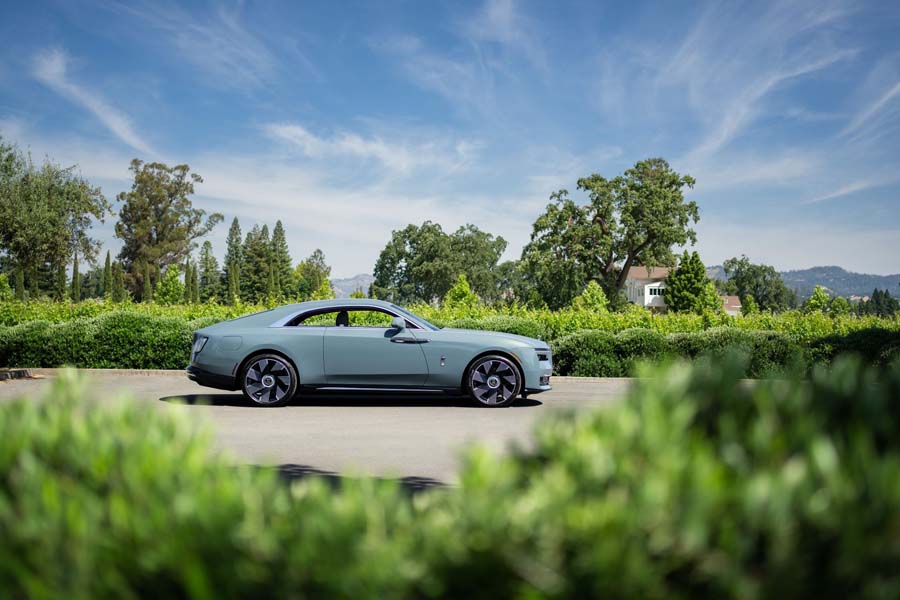
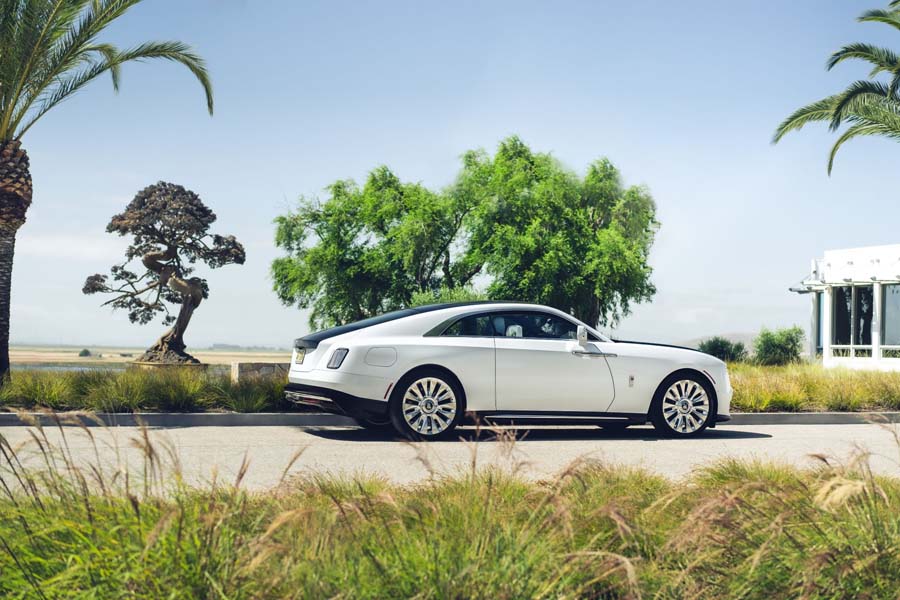 SPIRIT – Digital Architecture of Luxury
SPIRIT – Digital Architecture of Luxury
SPIRIT is a completely redesigned digital architecture that connects the Spectre owner with their car more closely than ever before. As well as managing the motor car’s functions, SPIRIT is seamlessly integrated into the marque’s Whispers app, allowing owners to interact with their car remotely.
For the first time, clients are able to extend their Bespoke commission into the digital realm; for example, by selecting the colour of the instrument dials to complement the car’s interior palette or exterior finish.
Effortless Doors
At almost 1.5 metres in length, Spectre’s laser-welded pillarless coach doors are the largest ever fitted to a Rolls-Royce. Made from 100% aluminium to reduce weight without compromising rigidity and strength, they are equipped with a specially developed iteration of the Effortless Doors power-assisted system specified on every Rolls-Royce from Phantom onwards. As originally developed for the current Ghost model, Spectre’s Effortless Doors operate on opening as well as closing.
A single pull of the interior handle opens the door to ‘comfort position’, allowing the occupant to check for hazards or obstructions. They then pull and hold the handle to activate full power assistance. When the door has opened sufficiently, they simply release the handle, which engages the door brake. The door can be closed automatically by pushing of a button on the external handle, or manually with power assistance. On-board longitudinal and transverse sensors, as well as G-force sensors fitted to each door, allow the same speed of operation regardless of hill or driveway angles.
In a feature unique to Spectre, the driver’s door closes automatically when the driver presses the brake pedal.
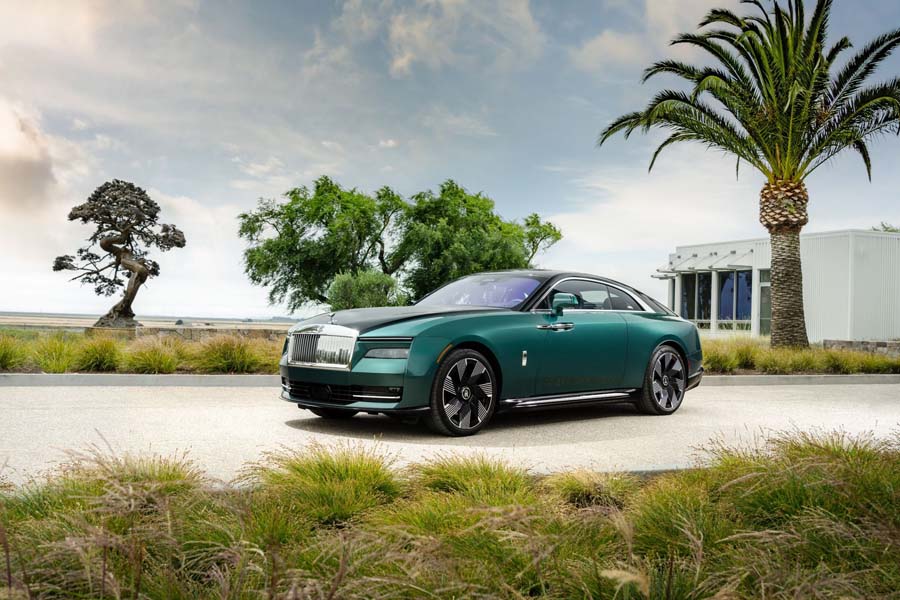
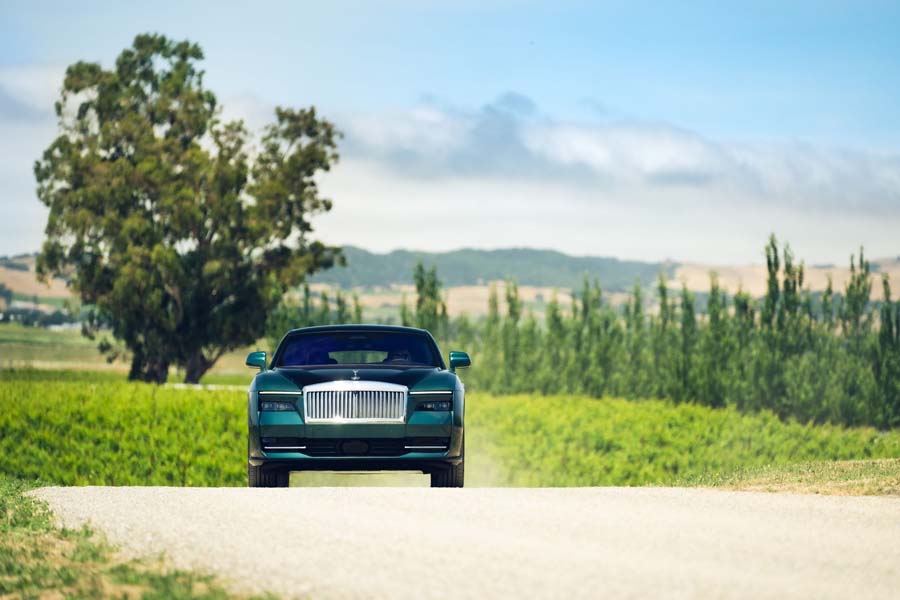 EXTERIOR
EXTERIOR
Spectre’s design draws inspiration from worlds far beyond automotive, including haute couture, modernist sculpture, nautical design, tailoring and contemporary art. In particular, the design takes cues from the clarity and precision of line and intelligent use of reflection in modern racing yacht styling.
Spectre’s Pantheon grille is the widest ever fitted to a Rolls-Royce. The polished stainless-steel vanes are smooth and flush-fitting, and softly illuminated with 22 LEDs lighting up the sandblasted rear surface, creating a subtle three-dimensional signature at night.
The Spirit of Ecstasy figurine was specially created for Spectre. With a lower stance and more aerodynamic profile, perfected over 830 hours of design modelling and wind-tunnel testing, it contributes to the motor car’s drag coefficient of just 0.25cd, making Spectre the most aerodynamic Rolls-Royce ever built.
The split headlights have been a signature Rolls-Royce feature for many years, and are a direct visual reference to Spectre’s illustrious forebear, Phantom Coupé.
The sharp, vertical bow line draws the eye rearward to Spectre’s fastback, which is inspired by both classic motor cars and racing yachts. The seamless roofline contributes significantly to Spectre’s exceptional aerodynamics.
The lower ‘waft line’ is the visual representation of the fabled Rolls-Royce ‘magic carpet ride’; Spectre’s coachwork gently tucks into the sill, lightening the surfacing and creating a sense of motion by reflecting the road passing beneath it, much like the hull of a racing yacht reflects the water as it cuts through it.
Following the roofline back, the tail lamps are set into the largest single body panel ever produced for a Rolls-Royce, which extends from the A-pillar to the luggage compartment. In anticipation of a variety of Bespoke exterior colour commissions, the rear lamps are colourless for neutrality.
To match Spectre’s generous proportions, it is the first production Rolls-Royce two-door coupé to be equipped with 23-inch wheels in almost 100 years.
INTERIOR
Spectre’s interior contains a wealth of technologically advanced Bespoke features. For the first time on a series production Rolls-Royce, these include Starlight Doors, which incorporate 4,796 softly illuminated ‘stars’. If they wish, customers can alternatively choose a backdrop of Canadel panelling, hand-crafted from a range of exquisite woods.
The ethereal, celestial theme continues with Spectre’s Illuminated Fascia. Developed over the course of two years and more than 10,000 collective hours, it incorporates the Spectre nameplate surrounded by a cluster of over 5,500 stars. Located on the passenger side of the dashboard, the illuminations are completely invisible when the motor car is not in operation.
Inspired by British tailoring, the all-new front seat design has lapel sections that can be rendered in contrasting or matching colours to the main base.
As with all Rolls-Royce motor cars, Spectre’s interior suite offers clients near-infinite Bespoke possibilities.
THE ROLLS-ROYCE THAT CHANGES EVERYTHING
Spectre is perfectly in tune with contemporary sensibilities, while also setting the direction for the future of the marque. As Charles Rolls himself foresaw, it is the motor car Rolls-Royce has been driving towards since it was founded – an elevated expression of effortlessness, power and historical endurance. A Rolls-Royce first and an electric car second, Spectre has been boldly conceived, meticulously engineered, exhaustively tested and spectacularly realised, and represents an unequivocal statement of intent, signalling to the world what Rolls-Royce stands for now and in the decades to come.
